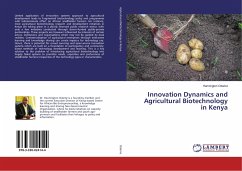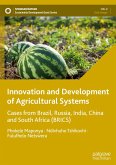Limited application of innovation systems approach to agricultural development leads to fragmented biotechnology policy and programmes with indeterminate effect on African smallholder farmers. For instance, most agricultural biotechnology research and development initiatives in Kenya are taking place in a poorly financed public research sector, with only a few initiatives conducted through donor-funded public-private partnerships. These projects are however influenced by interests of certain actors, institutions and organisations which may not be guided by local realities. Commercialisation of agricultural enterprises through interactive learning and knowledge sharing can create impetus for technology use. Hence, there is potential for crowd sourcing and open-source innovation systems which are built on a foundation of participatory and community-based methods of technology development and learning. This is a key solution to the problem of introducing agricultural biotechnology into largely failed systems to prioritize needs, capacities and preferences of smallholder farmers irrespective of the technology types or characteristics.








